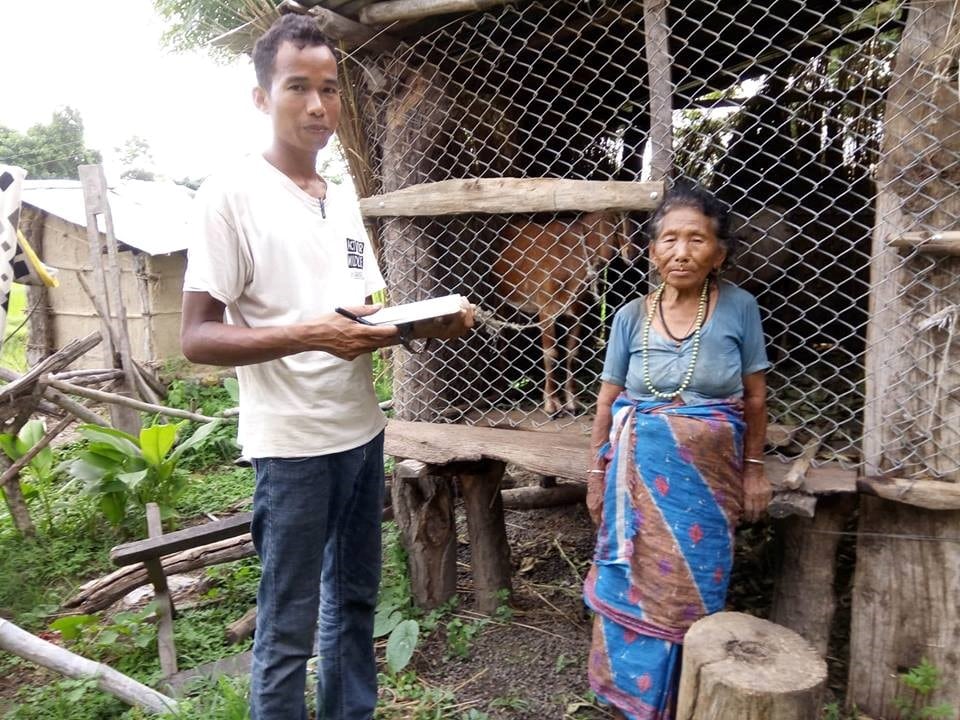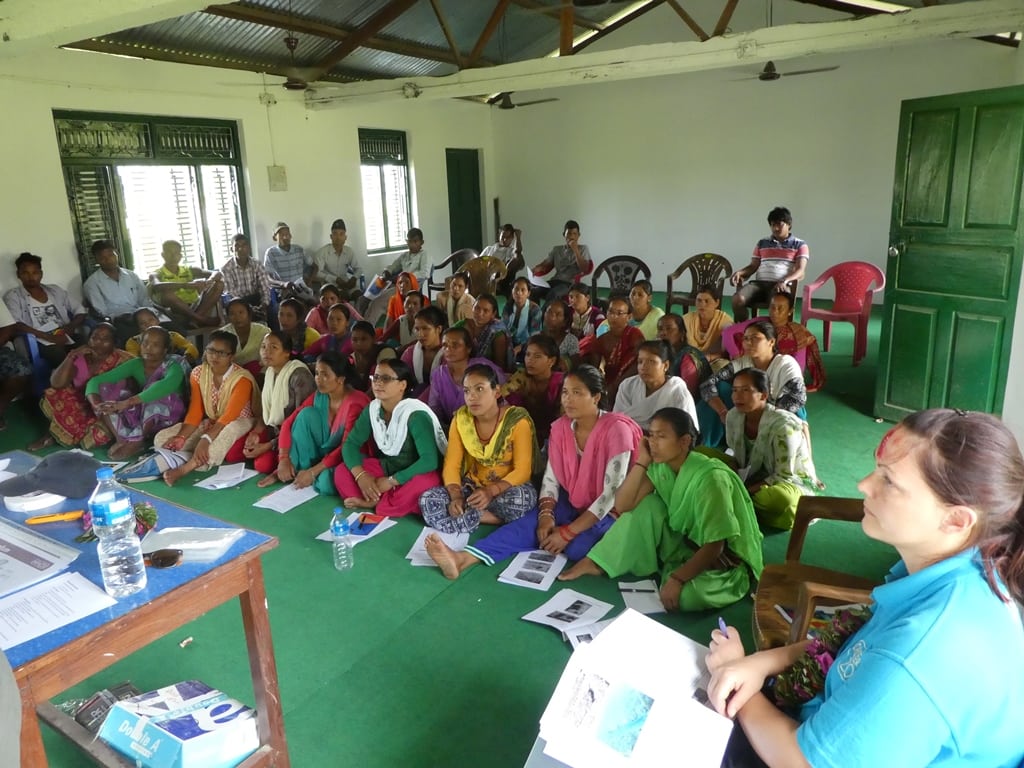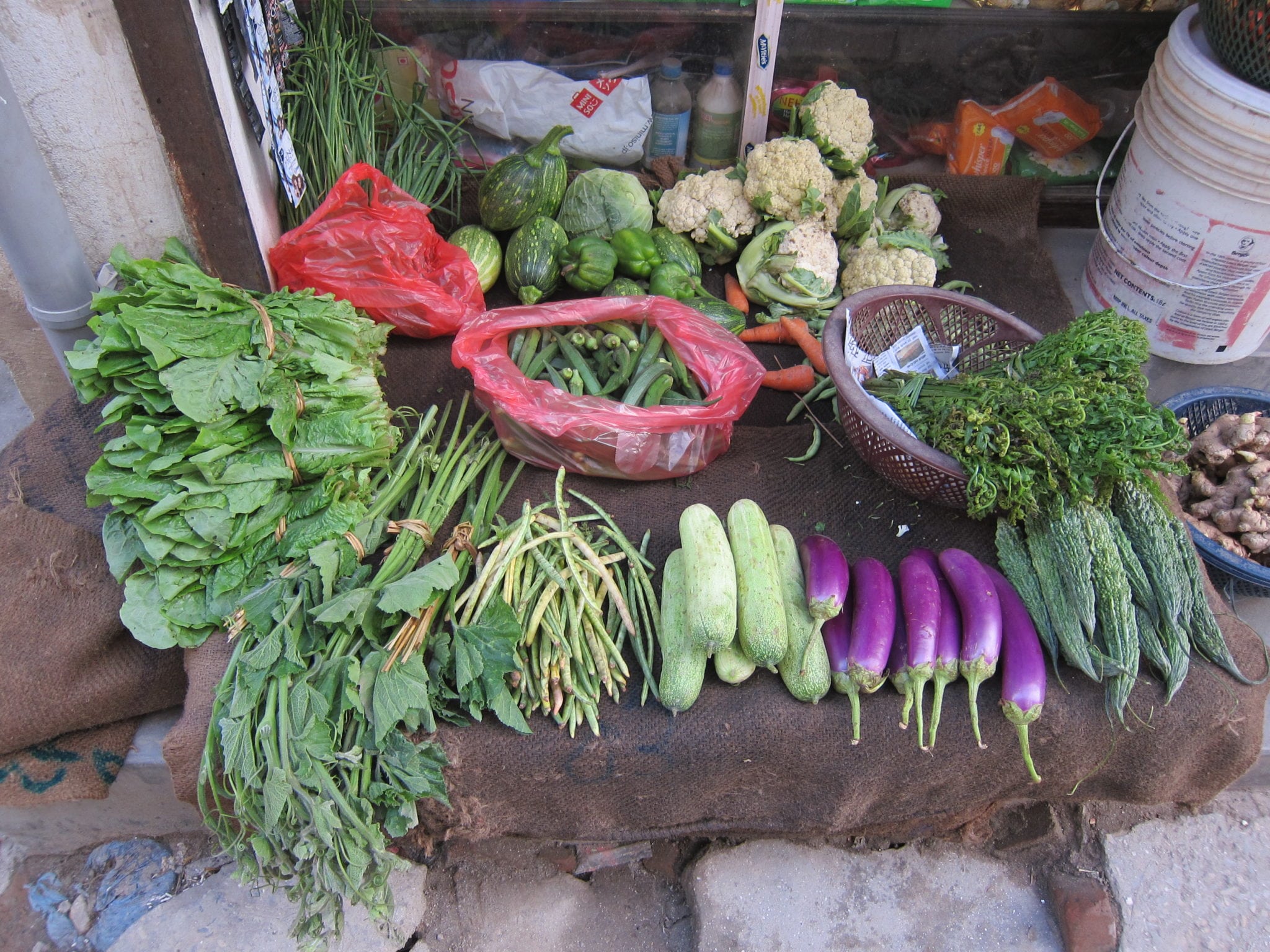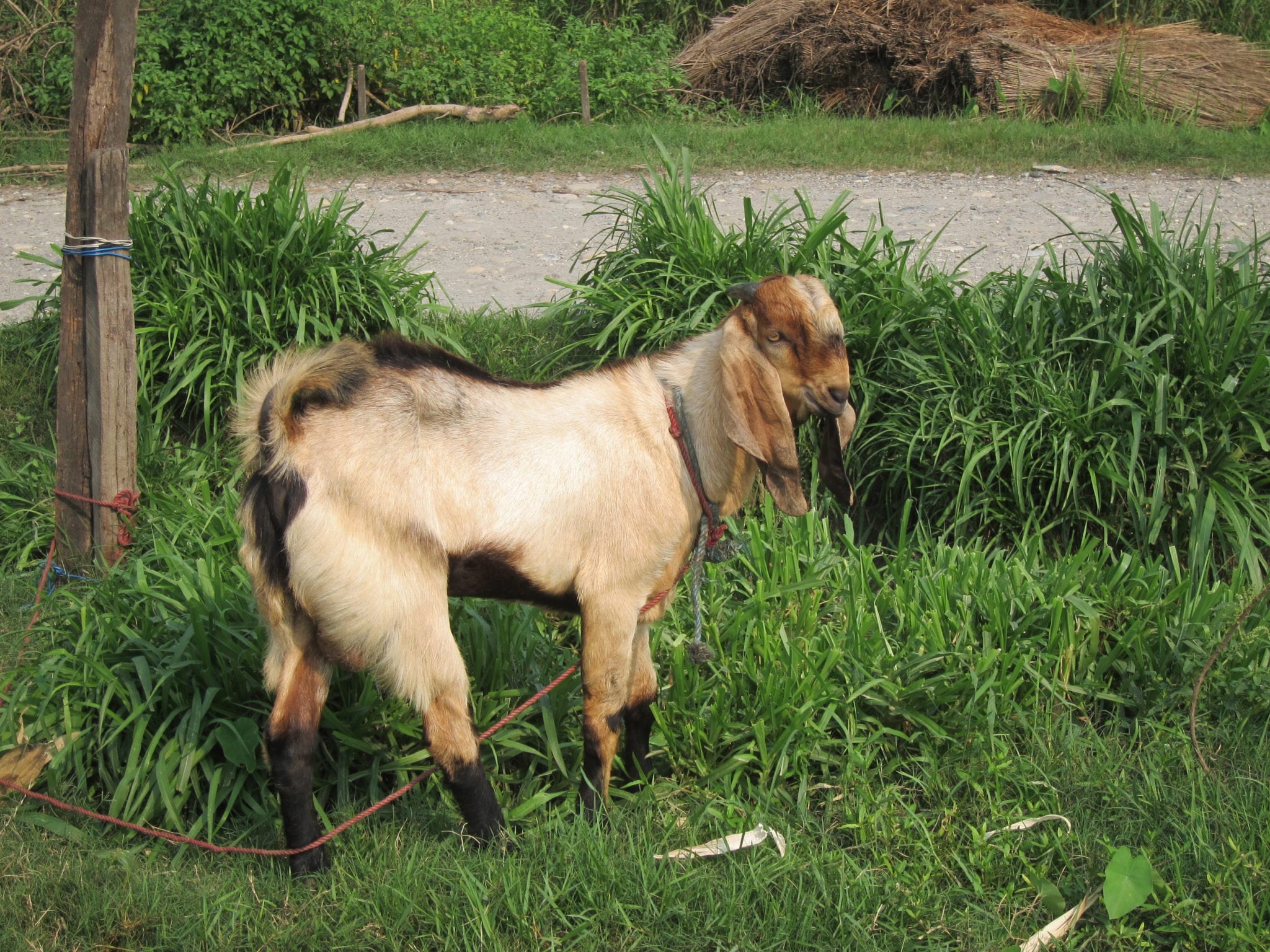Reducing human-wildlife conflict in Nepal
In 2016, together with Green Governance Nepal, we implemented the Living with Tigers project to minimise human-felid conflicts in the ‘buffer zones’ of Chitwan National Park and Bardia National Park.
The project is operating mainly to minimise the risk of tiger attacks, improve the protection of local communities’ livestock, promote alternative livelihoods, change behaviour and conduct ecological and social research.
The Living with Tigers project implements numerous activities, like the installation of predator proof pens and biogas plants but an important part of our job also involves providing training opportunities on goat farming and organic agriculture techniques.

Discover Ravi Sunakhari Magar’s story:
Ravi Sunakhari Magar lives in Geruwa Rural Municipality 01, which is one of the many buffer zone areas of Bardia National Park. She is a 75 year old single woman living in a small hut made up of bamboo and grass. Like many others who live in the buffer zone of the national park, Mrs Magar was facing the problem of human-wildlife conflict. She had a traditional livestock shed which was regularly attacked from tigers or leopards.
Among many beneficiaries of the project, Mrs Magar received support to install an improved predator-proof pen and it has been a pivotal change in her life! She also participated in training programmes delivered by the Living with Tigers project team and as a result has increased her goat holding to seven this year. Mrs Magar says:
“My life has changed and I can now heave a sigh of relief. My life has become happier as my livestock are safer and I am earning money from selling my goats. With the money earned I can buy rice, lentil, salt and other things for myself.”
She heartily thanked the Living with Tigers project for its effort to minimise human-felid conflict by improving local livelihoods. Mrs Magar can be an inspiration for many others and shows that the adoption of alternative livelihoods can be a great source of income generation. Therefore, improving local participation in conservation is crucial to make sure that projects such as the Living with Tigers project have a positive impact on local communities.

Discover Toran Bahadur Adhikari’s story:
Unemployment is a major problem in Nepal which makes paying for food and school fees for local children nearly impossible. Mr Toran Bahadur Adhikari knows this very well as his family income used to be too low for him to be able to send his children to school. Living in Kharikuna, Ayodhyapuri User Committee, he is now a successful farmer in an area that has started keeping livestock thanks to the support of the Living with Tigers project.
Toran was born in 1965 in western Nepal and migrated to Kharikuna in 2006 with his family. He initially struggled to settle with his family and earned some income by labouring, rent farming and collecting natural resources for the subsistence of his household.

Supporting his family – his mother, his wife and their two sons – in this new village was quite a challenge. He owned some land in the area; however, it was located near the forest and dry land.
Toran Bahadur’s skills and the effort he spent on farming, livestock keeping, handicraft, and carpentry kept him motivated to face challenges. He fought with Mother Nature to change the productivity of his dry land and has kept goats, chickens and cows, as well as seasonable vegetables in his kitchen garden.
During one of the training sessions provided by the Chester Zoo Horticulture and Botany team and conducted by Green Governance Nepal in early 2018, Toran learned about the benefits of kitchen gardening and started being inquisitive about vegetable farming. He says:
“I gathered my courage and expressed the willingness to receive some farming support because I wanted to try something new. In March 2018, after receiving the kit consisting of seeds of 10 types of vegetable, I started sowing in the backyard of my house, toiling hard following the instructions given in the training.”

“I took care of the garden like if it was my own child – watering the seeds at regular intervals, feeding them with organic manure from time to time and keeping the garden clean. By the third week of April, my efforts were rewarded. I planted almost all of the seeds and sold few of them to my neighbors. There was a boom in my field within two months.”
Recently, he received a follow up training session by the Chester Zoo Horticulture team. After retaining the adequate amount of vegetables for family consumption, Toran sold the surplus at the local market of his village. In addition to providing him with an income, not buying any vegetables for home consumption helped him save a considerable amount of money.
Toran added: “I used the surplus income generated from the vegetables to cater to the other households needs.”
The Tamta-Anar Community Forest hosts a population of tigers and leopards and is used by people for grazing and fodder collections. The conflict with carnivores was high in the past, and leopards and tigers have been recorded to kill goats, cows and chickens and have even attacked people. Toran’s house is about 50 meters away from this forest but despite the risks, he was motivated by Green Governance Nepal and the Living with Tigers project to start doing some goat farming.

Toran’s wife was provided with necessary mesh wires and materials to construct a predator-proof pen and also received some technical knowledge through the project’s training programme. Toran continues:
“After receiving support from the Living with Tigers project, I increased my number of goats from seven to nine and am confident for their safety during both the day and the night. We can sleep well at night.”
By setting the perfect example of self-sufficiency, this family has increased their income and is providing better facilities to their family. Overall, the success of Toran and his family’s vegetable garden and goat farming did not simply yield socio-economic benefits but also empowered them as small entrepreneurs!
Toran and his wife now feel confident and look forward to many more profitable opportunities. They are going to grow mushrooms and will start making their own compost. Life is all about taking chances and Toran and his family took the initiative to learn, understand, and apply new techniques to get better results.